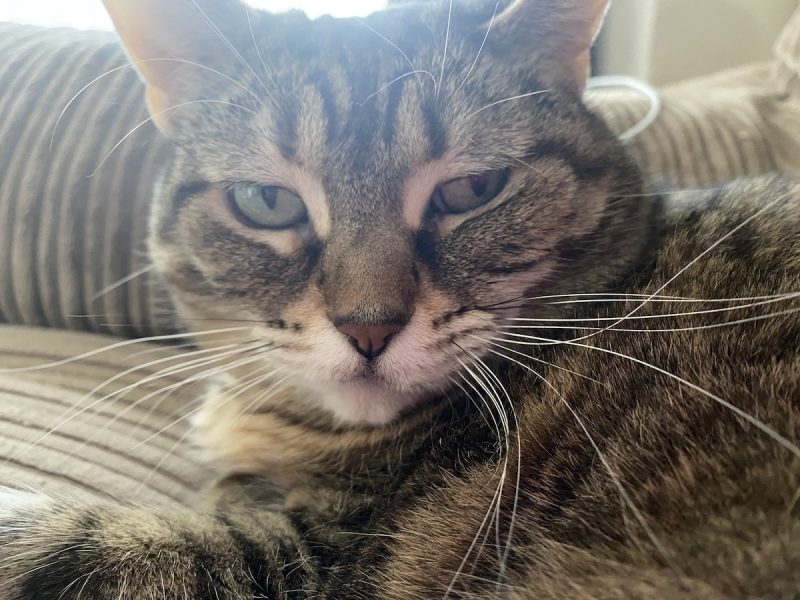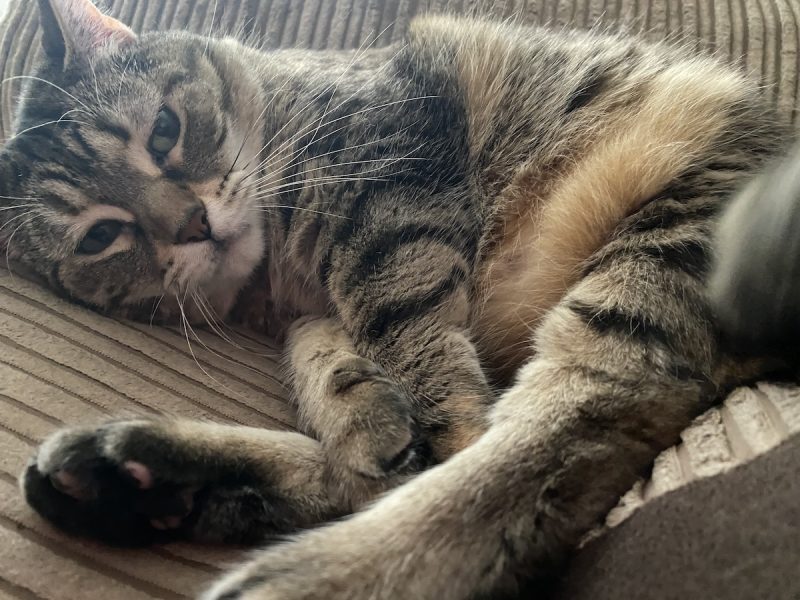Hi, I’m Dr. Lauren! Read my introduction to learn more about me and my two adventurous cats, Pancake and Tiller.
As a veterinarian, this is a typical time of year that I get all kinds of complaints about itchy cats. Warm weather leads to plants and trees blooming, which increases the number of pollens and other allergens, insect levels rise, and cats become itchy. But a cat doesn’t have to lose hair or actively scratch to mean they’re itchy. Sometimes cats show irritation in unexpected ways… let’s see.
Signs of Itchy Cats
Common signs of itching include the obvious such as the physical act of scratching and hair loss. A lesser-known sign is the “itch response”—something we’re usually taught in vet school in relation to sheep, but I also see in many itchy cats in clinics. If a cat has general itching (the Latin term is pruritus) then scratching them or stroking them on top of their butt can cause chewing. Strange one!

Hair loss, and scabs, can also indicate that physical scratching has traumatized the coat and scalp. But you may not realize that an itchy cat can simply manifest as a cat that grooms frequently. Now, surely most cats will spend a fair amount of time grooming their coat. But itchy cats often lick or graze when they’re itchy, rather than outright scratching, like a dog would. Try looking at the times your cat grooms, if you are trying to decide if this is normal or not.
Normal grooming behavior occurs after eating, or before bed. Itchy cats tend to groom at random times- they’ll walk around a room, and then stop to do a short grooming session. Or you’re taking care of them, and suddenly they’re having a fun cleaning session. They will also fast in front of strangers or in unusual places- where they will not and should not be completely relaxed.
Common Causes of Feline Itch
Just like people, cats can also develop allergies. Fleas are common in many cats. Food is another, especially proteins like beef and fish. But ectoparasites, such as fleas, and skin mites, can also cause itching even in non-allergic cats.

Ways to Help Itchy Cats
It’s always best to start with a visit to your cat’s vet. Bring pictures and videos of anything questionable, as these can sometimes be difficult to see in the clinic, or your pet may not exhibit the behavior.
Also make sure your cat is up to date on flea and worm treatments. (Some tapeworms can cause excessive itchiness in the back for some patients! And fleas are a major cause of feline tapeworms!) Also remember that even a small amount of fleas can be cause some cats to be very itchy, if they are allergic. And if that itchy cat has a tendency to groom, they can eat all evidence of fleas before they can be detected. Therefore, an ounce of prevention is really worth a pound of cure!
Your veterinarian can also guide you through other treatments that may help your cat, which may include diet tests to identify food allergies, and medications that suppress itching.
In general, itching in cats is very treatable, so don’t be afraid to scratch that itch, so to speak, and dig deeper into the issue by seeking professional help.


